|
Then the angel who talked with me returned and woke me up, like someone awakened from sleep. He asked me, “What do you see? ” I answered, “I see a solid gold lampstand with a bowl at the top and seven lamps on it, with seven channels to the lamps. - Zechariah 4:1-2 The Bible is not a novel, not a biography or a history book. It is truly the book of life, that allows you to question your part in God’s creation. When a person decides to read the Bible, he or she must be aware that there will be challenges in order to complete the task. Some of them perhaps will be visions of the prophets, like in the above vision of the minor prophet, Zechariah. It is not easy to understand the prophets of the Bible, but a reader must keep two things in mind. One, a prophet’s visions always have meanings that relate to the prophet’s immediate cultural surroundings or world order. Second, there is always a fact or wisdom about God for anyone, who reads the prophecy with the right intent. In this particular prophecy Zechariah has a message to the governor, Zerubbabel to rule not by power, but by faith, while Zechariah also brings a message about God to all of us. He reminds the believer that God is around us and sees everything. Zechariah’s vision talks about a lampstand and seven lights, which is a metaphor to realize in our many types of darkness (confusion, failure, disappointments, despair, loneliness) that God is our sunshine behind every cloud. For followers of Christ today, God wants us to know, we are blessed by the divine light in Jesus Christ. He illumines the only path for us to abundant life. Jesus himself said this in the Gospel of John, “I am the light of the world, who follows me will not walk in darkness, but will have the light of life.” (John 8:12) In the same Gospel, we can read also, “In Jesus was life, and the life was the light of men.” (John 1:4-5). We are here to reflect that light of Christ today and every day through: love, peace, patience, kindness, goodness, faithfulness, gentleness and self-control. (Galatians 5:22-23). Prayer Holy God, I am a creature made by you, but controlled by dark forces. Let the light of Jesus shine through me, so may my entire being blend with Jesus’ radiance. A velem beszélő angyal újra fölébresztett engem, ahogyan álmából szokták fölébreszteni az embert, és ezt kérdezte tőlem: Mit látsz? Én így feleltem: Egy színarany lámpatartót látok, tetején egy tál; hét mécses van rajta, és a tetején levő mécseseknek hét-hét csücske van. - Zakariás 4:1-2 A Biblia nem egy regény, nem egy utikönyv, nem egy életrajzi kiadvány, de nem is történelem könyv. A Biblia az élet könyve, hiszen az, aki olvassa, választ kaphat a saját életét érintő nagy kérdéseire, amire a teremtő Isten próbál választ adni. Amikor valaki úgy dönt, hogy elolvassa a Bibliát, tudni kell azt, hogy a feladat nem lesz könnyű. A Bibliaolvasás olyan nehézségekkel jár, mint például Zakariás próféta látomásának a megértése. A próféciák értelmezéséhez, két fontos dolgot kell figyelembe vegyünk. Az egyik az, hogy a próféták üzenete mindig az adott kor egy vagy több társadalmi problémájával kapcsolatos, a másik, hogy a prófécia mindig tartogat az istenfélő ember számára legalább egy örök, bölcs tényt Isten és az ember kapcsolatáról. Zakariás próféta fent idézett látomása isteni felszólítást tolmácsolt az akkori Zerubbábel kormányzónak, hogy ne a hatalma diktálja, hogy miként bánik a néppel, hanem az Istenbe vetett hite. A hívő ember számára az üzenet az, hogy Isten mindent lát. A próféta költőien Istent, a föld és a lélek lámpásának jeleníti meg, aki az emberi sötétséget (kiábrándultság, magány, félelem, aggodalom, bűn) fényével átragyogja. A keresztyén embernek ez a bizonyos fény a Jézus Krisztus, hiszen Ő maga utalt erre, mikor ezt mondta: ,,Én vagyok a világ világossága, aki engem követ, nem jár többé sötétségben, hanem az örök élet fényében.” (János 8:12) Maga a Krisztus az, aki megvilágítja utunkat az üdvösség ígéretével. Testvérem, tudod-e, hogy azért élsz, hogy a Jézus Krisztus tündöklő fénye visszaverődjön rólad valaki másra a szeretet, békesség, türelem, alázat, gyöngédség, jóság, bizalom és önfegyelem gyakorlásával, amire egy példaképünk van, Istennek Szent Fia, a Jézus Krisztus. Imádság Istenünk! Teremtményeid vagyunk, akiket a sötétség erői kísértenek nap, mint nap. Könyörgünk, hogy a Krisztus fénye mosson minket tisztává, hogy Ő ragyogja át szívünket az Atya dicsőségére. Ámen. And when the parents brought in the child Jesus to do for Him what the custom of the Law required, Simeon took Him in his arms and praised God. – Luke 2:27-28 Many people, especially around Christmas, ask or think, “what kind of holiday is this?”, or “who or what is it all about?” The answer could be either easy or complicated. It depends on which side you are on, those who identify as followers of Christ or those who doubt the importance of the person of Jesus Christ. I think the best way to find out if you are either a believer or a denier of Jesus, the man and Jesus the deity is to take a look at those who were, and whom are around Jesus. Are these people relatable or respectable for me? Jesus as a child was surrounded by people of virtue.
Prayer Blessed be your name, Father, Son and Holy Spirit, the one true God who loves us more than we can ever love. Amen. Amikor a gyermek Jézust bevitték szülei a templomba, hogy eleget tegyenek a törvény előírásainak, akkor Simeon karjába vette, és áldotta az Istent. - Lukács 2:27-28 A Karácsony körüli időben sokan teszik fel a kérdést: ,,milyen ünnep ez?” vagy, hogy ,,kiről, miről van itt szó?”. A kérdésre a válasz lehet egyszerű vagy bonyolult. Attól függően, hogy melyik oldalon áll az ember. Azon, ahol a Jézus követői állnak, vagy ahol a Jézus Krisztust tagadók sorakoznak. Szerintem a legkönnyebben úgy lehet választ kapni arra, hogy melyik oldalon állunk, ha az ember figyelmesen megvizsgálja a Jézus Krisztust körülvevő embereket és felteszi a kérdést önmagában: tudok-e azonosulni ezekkel az emberekkel? A gyermek Jézust tiszteletre méltó, erényes emberek vették körül:
Imádság Áldott legyen a Te Neved: Atya, Fiú, Szentlélek Isten, akinek a szeretete igazabb, mint bármelyikünké. Ámen. And when they had kindled a fire…Peter sat down among them. Luke 22:55 As soon as they were come to land, they saw a fire of coals there. John 21:9 A wonderful preacher (Vance Havner) wrote once, we are often like Peter, who just in a short time was sitting by two fires. Once in the company of the enemy (denying Christ) and next, enjoying the warmth of the fire that the Master (who he denied before) lit, when he invited him to receive Christ’s commission to go and feed his flock. Important to note, that Peter both times spoke. At the first fire he said I don’t know Jesus, while by the second fire he told three times to Jesus that he loves Him. What would your answer be if Jesus would ask you three times about your devotion: Do you love me? Do you really love me? Are you even my friend? As we step into this Advent Season, be careful to notice the fires of commercialism and the fire of receiving the promise of God in delivering us a savior. Choose wisely the simplest gifts to give and not the expensive ones without true meaning behind them. When you decide to give, picture Jesus Christ behind every gift that you give, because he wants from you the basic, raw and honest form of dedication to all people, which lasts well over Christmas. Prayer Dear Lord, keep us near to your fire at all times, especially during the times, when evil hides in the clothing of angels. Amen. Mikor az udvar közepén tüzet raktak, és körülülték, Péter is leült közéjük. Lukács22:55
Amint kiszálltak a partra, parazsat láttak ott, rajta halat és kenyeret. János 21:9 A legendás igehírdető, Vance Havner egyszer arról írt, hogy mennyire hasonlít az ember Péterre, aki egy rövid idő leforgása alatt melegedett két tűz közelében,két ellentétes személy benyomását keltve. Egyszer, amikor azokkal ücsörgött a tűz melegénél, akik Jézus halálát kívánták, majd annál a tűznél, ahol magával az Úrral társalgott, (akit a korábbi tűzmelegnél letagadott) és aki feladattal látta el Pétert, hogy menjen és legeltesse az ő nyáját. Fontos megjegyezni, hogy Péter mindkét alkalommal megszólalt. Először azt mondta a tűz melegénél, hogy nem ismeri Jézust és a tanítványokat. Másodszor pedig háromszor ismételte el Krisztusnak, hogy szereti őt, miközben halat és kenyeret sütöttek. Mi mondanál te a Krisztusnak, ha ezeket kérdezné tőled: Szeretsz engem? Igazán szeretsz engem? Egyáltalán barátodnak tartasz-e engem? Ebben az adventi időben légy óvatos, hogy különbséget tudj tenni a különböző tüzek ragyogása közt. Ne engedd, hogy az értéktelen csillogás elvakítsa Isten üzenetének a fényét. Ne a drága dolgokat tekintsd az ünnep értékeinek, hanem a legegyszerűbb dolgokat, hiszen azok rejtegetik az igazi értékeket. Amikor ajándékot adsz, képzeld oda a Jézus Krisztust, mert róla kell szóljon az advent, a karácsony, hiszen Ő az igazi, valódi ajándék mindnyájunk számára. Imádság Drága Istenünk, engedd, hogy a Te tüzednél melegedhessünk mindig és főleg akkor, amikor a gonosz álruhát ölt, hogy angyalként tündököljön közöttünk. Ámen. How long, O Lord, must I call for help? But you do not listen! – Habakkuk 1:2 The Prophet Habakkuk is one of the Minor Prophets with a unique message, the world might look evil or Godless around us, yet the Lord is still in charge with everything. Among the prophets Habakkuk seems to be like any of us. He shows concern, such as sadness and disappointment because of all the calamity he sees in his life. The prophet asks God the questions that we all carry deep inside of our hearts. Why and how long we have to wait for the almighty power of God to make things right in the world, where struggle, misfortune and injustice just keep piling upon us? Habakkuk’s faith does not evaporate under the pressure of the world, but gaining more strength to seek God’s advice in the hardest of times. At the end, God listens and provides the answers for the faithful’s inquiry. God explains and teaches how to endure the harshness of the world and remain truthful to God. This makes the prophet’s faith renewed to live in praising the one true and most powerful God. Have you ever been in a dark place, where you questioned the existence of God in your trouble? Have you been patient enough to receive God’s guidance in your misery? Is your faith in God strong enough to be able to find joy in him only by trusting him regardless of your unpleasant daily experiences? Meddig kell még kiáltanom, Uram, miért nem hallgatsz meg? Kiáltok hozzád az erőszak miatt, de nem segítesz! - Habakuk 1:2 Habakuk próféta a kispróféták egyike, akinek üzenete más, mint sorstársaié. Üzenetének lényege számunkra az, hogy nem számít, hogy milyen istentelen, gonosz világban élünk, mert Istenünk mindent kezében tart, ami számunkra nem mindig egyértelmű. A kispróféták között, Habakuk próféta azért is különleges, mert hasonlít mindnyájunkra. Szavai mögött fásultságot, feszültséget és szomorúságot fedezünk fel, ami arra utal, hogy mindennapos problémákkal küzdött, mint te meg én. Habakuk próféta az Úrhoz fordul, ahogy mi is tesszük, amikor elviselhetetlennek tűnik a világ igazságtalansága. Számon kéri Istent, hogy hol késik, merre jár, miért nem segít, amikor minden bizonytalan, amikor az élet csupa fájdalom, amikor az emberek barátokból ellenséggé válnak.Habakuk kérdései nem a hitének elveszítésére utalnak, sokkal inkább hitének megnyílvánulására. Az Úr választ ad Habakuknak. Isten vigasztalja, tanítja és szinte új életet lehel Habakukba. A próféta, a hite által érzi magát Isten valódi, értékes gyermekének. Voltál már életedben olyan nehéz helyzetben, hogy kérdőre vontad Istent úgy, mint Habakuk? Volt-e elég hited, hogy észrevedd az utat, amit Isten kijelölt neked? Van-e akkora hited, hogy senki és semmi nem tántoríthat el az Isten által neked szánt feladattól? I want to see a mighty flood of justice, an endless river of righteous living. -Amos 5:24 In our study of the Minor Prophets, such as Amos, we learn a reoccurring message from God. The Lord demands justice. People of all nations lived in constant battle with God, ever since creation, often without recognizing. People tend to be the same ever since. They are too busy living their own self-centered lives. People say they want to see God’s mercy in their lives, but they also want to be able to criticize others. People judge each other by looking what other people do, or feel or by what those others possess. People without shame ridicule their neighbors for their different thinking or looks. At the same time, they fail to take one little step to see their own sins and to correct their own errors. Therefore, perhaps the most damaging sin in the eyes of God is being a hypocrite, who portrays his or her love for God for a show, but in truth they do almost everything against the will of God. The Lord wants us to be cleansed daily and live with a sincere heart, like the one Jesus had. This means, when you worship God be concerned only about your own attitude towards God and care not about judging others. When you give, focus on being generous without expecting anything in return. If God ask you to feed and clothe the poor, don’t ask who they are or what color is their skin, but give as God provides for you gently, knowing you perfectly well and forgiving you for the sins that you carry on your shoulders. When the people of Israel heard that the day of the Lord is near, they thought only about the best things they might experience, leaving all their troubles behind, but God had a different plan. When the day of the Lord came there was a reckoning of sincerity and punishment before the Lord showed his mercy. Prayer Glorious and mighty God, let me live in truth and good will to serve you and your kingdom with gladness in my heart. Amen. Áradjon a törvény, mint a víz, és az igazság, mint a bővizű patak! – Ámosz 5:24 A Kisprófétákkal foglalkozók számára felismerhetővé válik az, hogy sok nemzetség fiai harcoltak Istennel, sokszor úgy, hogy fogalmuk sem volt róla. A konfliktus mögött az állt, hogy kétségbe vonták az isteni igazságszolgáltatás létét, Isten ígéretét. Nem vették komolyan a próféciát, hiszen túlságosan elvoltak foglalva a saját életükkel. Az emberek gyarlóak. Vágynak az isteni kegyelemre, de arra is, hogy ők maguk ítélkezzenek mások felett. Igen. Szeretünk másokat kritizálni cselekedeteikért, másságukért, gondolkozásukért. Hibákat és bírálni valót keresünk másokban, de sajnos, a saját hibáinkat nem szívesen vesszük észre, ha viszont valaki felhívja rájuk a figyelmünket, képesek vagyunk örökre megharagudni az illetőre. ĺgy talán nem véletlen, hogy Isten szemében az egyik legvisszataszítóbb tulajdonság a képmutatás. Sok olyan ember van, aki Istent szerető és Istent tisztelőnek tartja magát, de az csak egy látszat, mert valójában egy bűnös, önző életet él és ez teszi őt boldoggá. A mennyei Atyánk Krisztusra mutatva azt szeretné, hogy naponta megtisztuljunk lélekben és egy új, jósággal teli szívvel induljunk el otthonról. A templomban pedig, főleg a saját magunk viselkedésére koncentráljunk ne a máséra, hiszen csak így látja Isten bennünk az alázatos gyermekét. Amikor Isten arra kér, hogy adj enni az éhezőnek, adj ruhát a ruhátlannak, ne tedd azt a saját előítéleted függvényévé, mert rögtön képmutatóvá válsz.Emlékezz arra is, hogy amikor Izrael népének tudomására jutott, hogy közeleg az ítélet napja és az igazság, mint bővízű patak ömlik majd rájuk, újjongtak, mert azt hitték, hogy mindez boldogságot és a problémáiktól való szabadulást jelenti. Isten nem ezt ígéri. Az ítélet napján az elszámolással kell mindenkinek szembenézni, amit a büntetés követ és csak azután válunk mind éretté arra, hogy a teremető Isten kegyelmének békéjét magunkénak tudhassuk. Imádság Dicsőséges, hatalmas Isten, engedj engem igazul élni, hogy ne legyek képmutató, hanem hűséges szolgád, akiben örömödet leled. Ámen. Jesus turned and saw her. “Take heart, daughter,” he said, “your faith has healed you.” And the woman was healed at that moment. – Matthew 9:22 In this beautiful tale of healing, what could it mean when Jesus said, “take heart”? According to scholars, taking heart in this particular story relates to the woman’s faith, which is not the same faith that we all have as part of our existence and daily routine. We all have faith in things like electricity that empower us daily. We also have faith in the dollar that buys us the things that we need, or we have faith in the painkiller we take, when we have a splitting headache. However, the faith that heals through the power of God comes from above and goes through the human heart. It makes you excited, it gives you reassurance, it lifts you out of your body, it makes you feel strong and worthy in every sense that is possible for humans to understand. Therefore, when Jesus says, take heart, means give up yourself to God, who will live inside of you. Be faithful to God not only for a while, but always and with everything that you have. It is crucial for us to realize that God does not promise to take away our illness or other types of sufferings, but to make us well in spirit because with spiritual strength, we can serve and glorify others and that is the true worship of God. Prayer Change us, almighty God, so we can be like Christ, living sacrifices to deliver your will. Amen. Amikor Jézus megfordult, és meglátta őt, így szólt: „Bízzál, leányom, hited megtartott téged.” És meggyógyult az asszony abban az órában. – Máté 9:22 Mit jelent ebben a szívmelengető történetben Krisztus utasítása: ,,bízzál”, mielőtt meggyógyítja a fiatal nőt? Számos teológus szerint a Jézus által említett bizalom a szeretetből táplálkozik, tehát a szívnek helyén kell lennie mielőtt igaz hitre, bizalomra gondolunk. Mindnyájunk rendelkezik hittel. Például, bízunk abban, hogy világosság lesz a szobában, amikor felkapcsoljuk a villanyt, van hitünk a pénzben, amit fizetségként kapunk a munkánkért és vásárolni tudunk vele az üzletben, de hit az is, amikor megvagyunk győződve arról, hogy a patikustól kapott fájdalomcsillapító megszünteti a fejfájást, amikor bevesszük és nem mégnagyobb fájdalmat fog okozni. Az Úrba vetett bizalom, amiről Krisztus beszél az emberi szív függvénye. Csak akkor lehetséges Istenben bízni, ha Őt érezzük, illetve érezni akarjuk. Ez nem egy hétköznapi bizalom, hanem egy meggyőződés, ami az embert boldoggá teszi, kíváncsivá varázsolja, amivel gyermeki odaadással vágyódik az Isten közelségére. Ilyenkor az ember felszabadul, biztonságban érzi magát, és lelkesen és örömmel teljesít bármilyen feladatot, hiszen szíve azért dobog, hogy szófogadóan éljen és örömet szerezzen Istennek. Tudsz -e így bízni Istenben? Amikor Istenben bízunk, akkor tudnunk kell azt is, hogy az Úr nem ígéri azt, hogy bennünket meggyógyít vagy gondjainktól végleg megszabadít, hanem, hogy egyetelen, igaz lelki támaszunk marad megpróbáltatásaink közepette és e földi élet után mindnyájunkat tárt karokkal haza vár. Imádság Köszönöm áldásod Uram, Istenem, ami által lélekben mindig Veled lehetek.Segíts, hogy hinni, bízni tudjak benned a Krisztus által. Ámen. |
The Reverend Tamas Devecseri serves the Hungarian Reformed Church of Carteret since September of 2012. He was born in Gyongyos, Hungary, moved to the USA in 1991. He received his B.A. degree in Rutgers University in New Brunswick, New Jersey, his Master of Divinity degree in the New Brunswick Theological Seminary, where he also received the Certificate of Fitness for Ministry as a student, in the care of the Reformed Church In America. He received the call to serve at the Hungarian Reformed Church of Carteret, where he was ordained and installed as a full time pastor. Archives
August 2021
Categories |
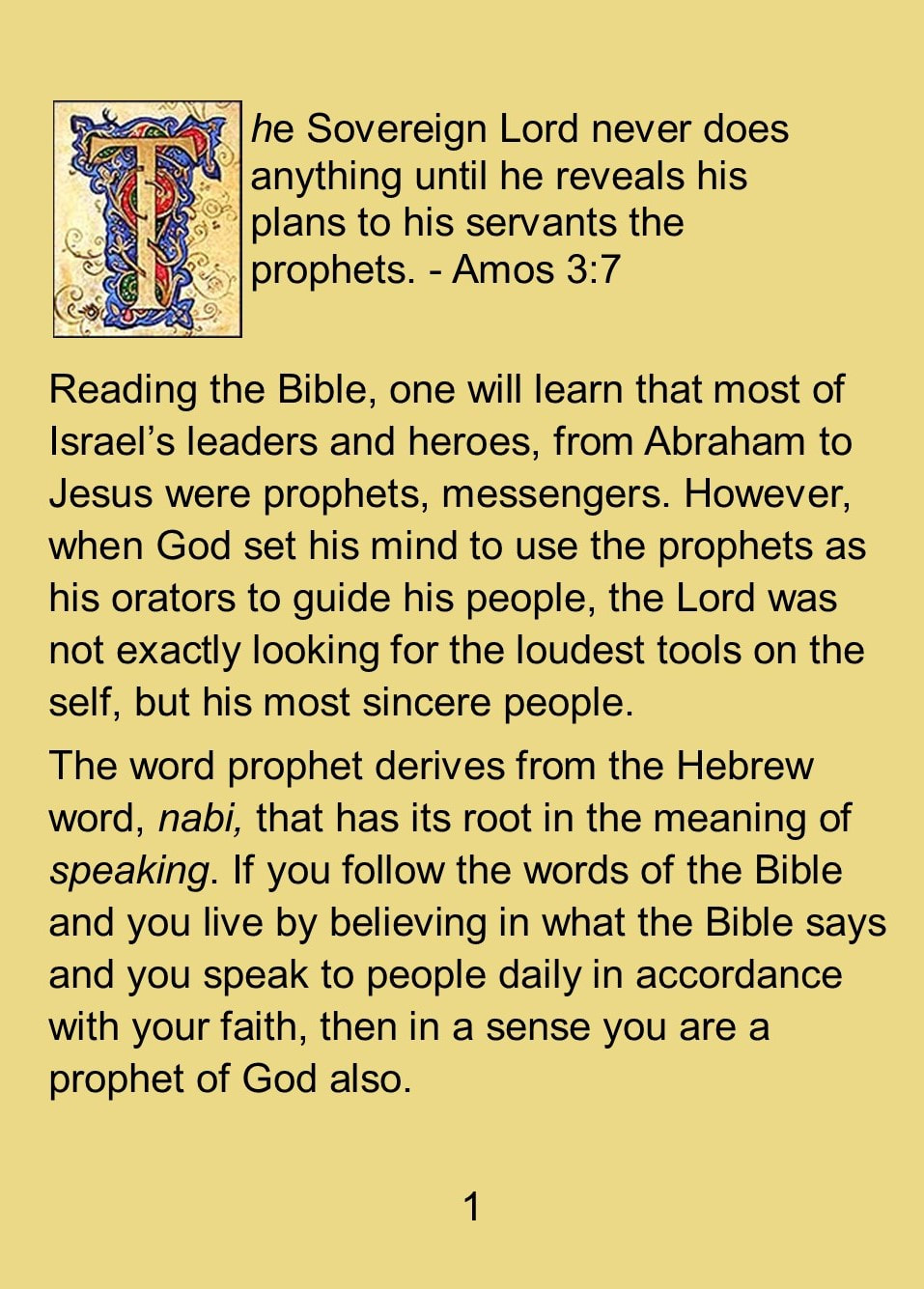
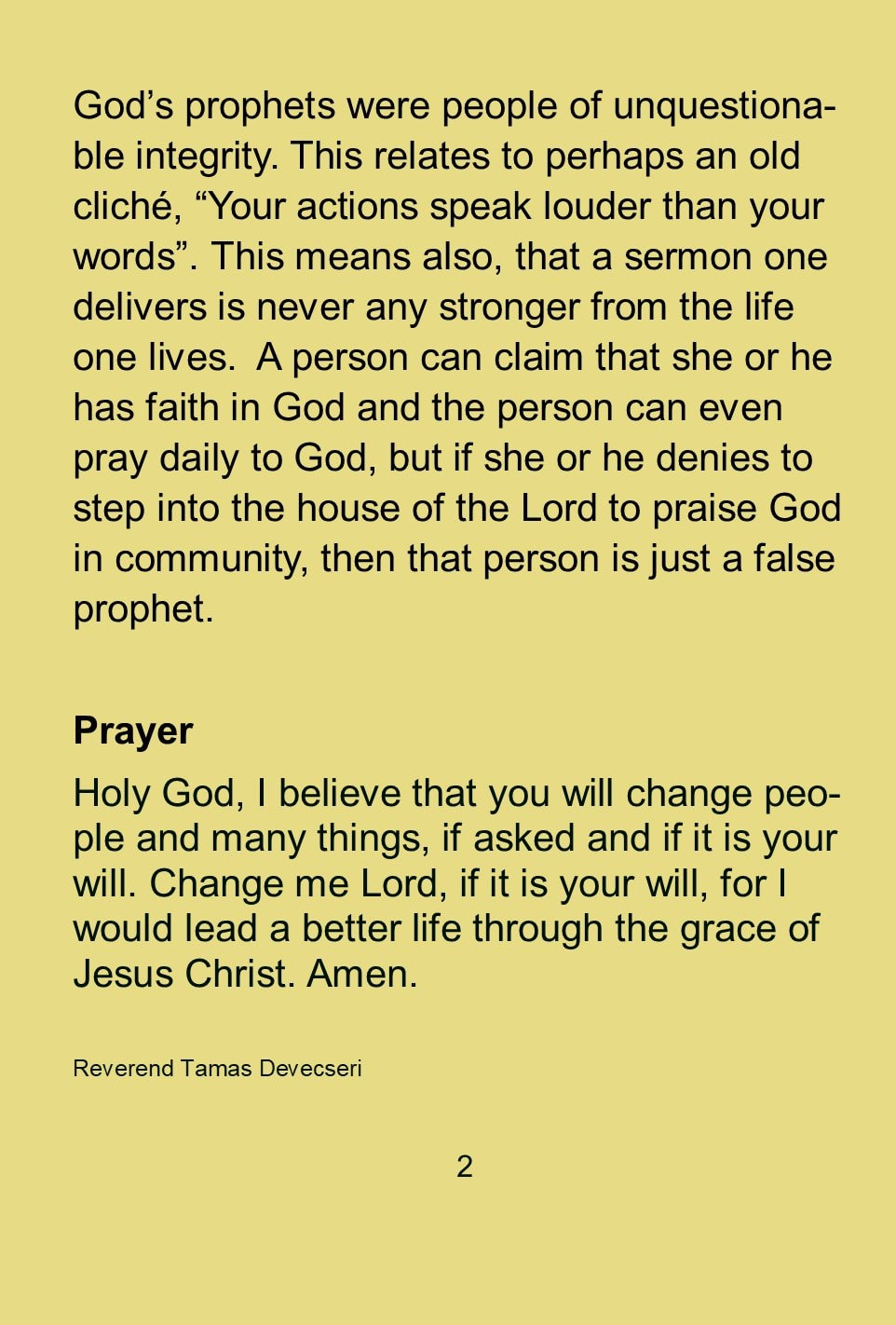
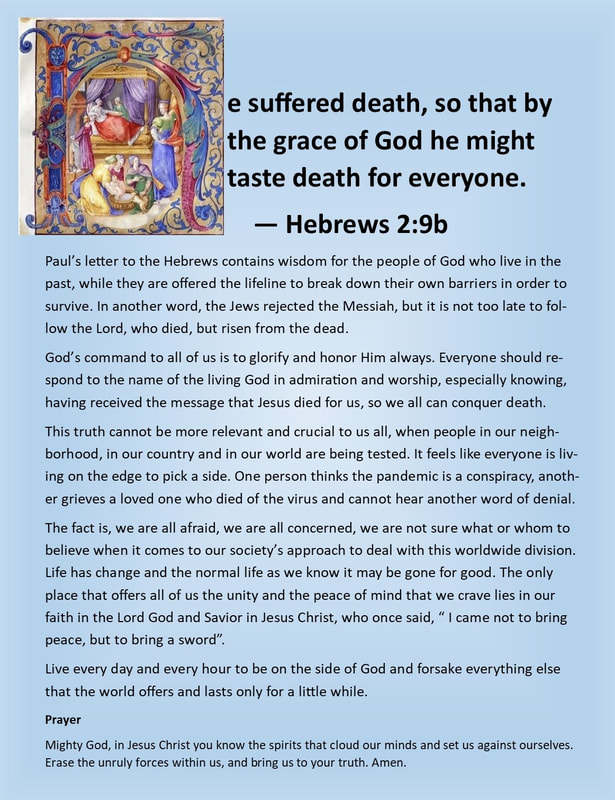
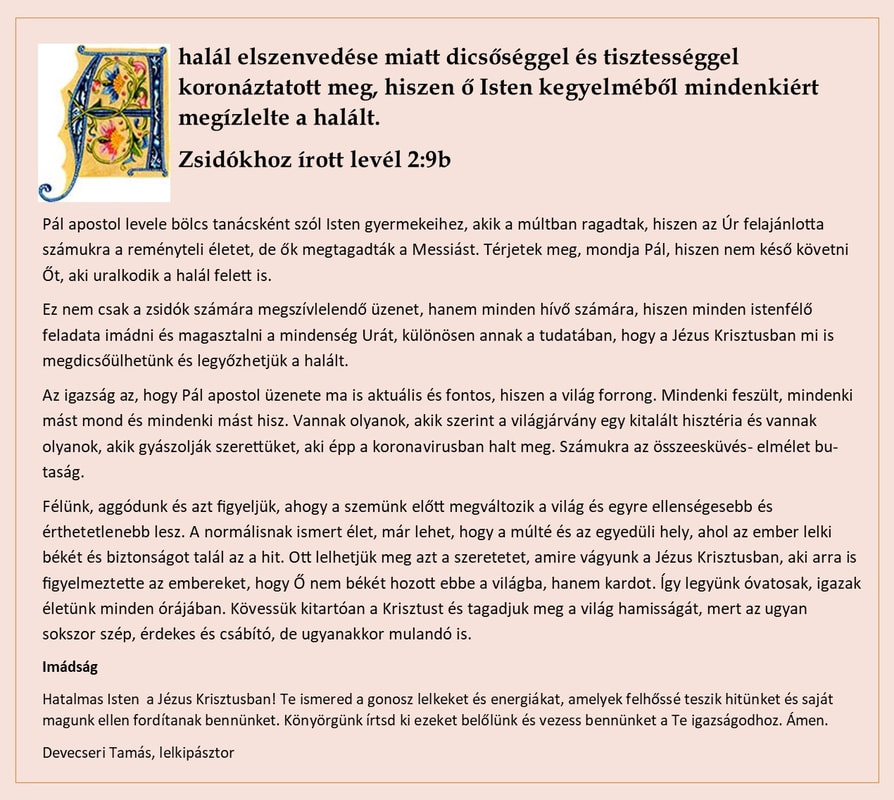
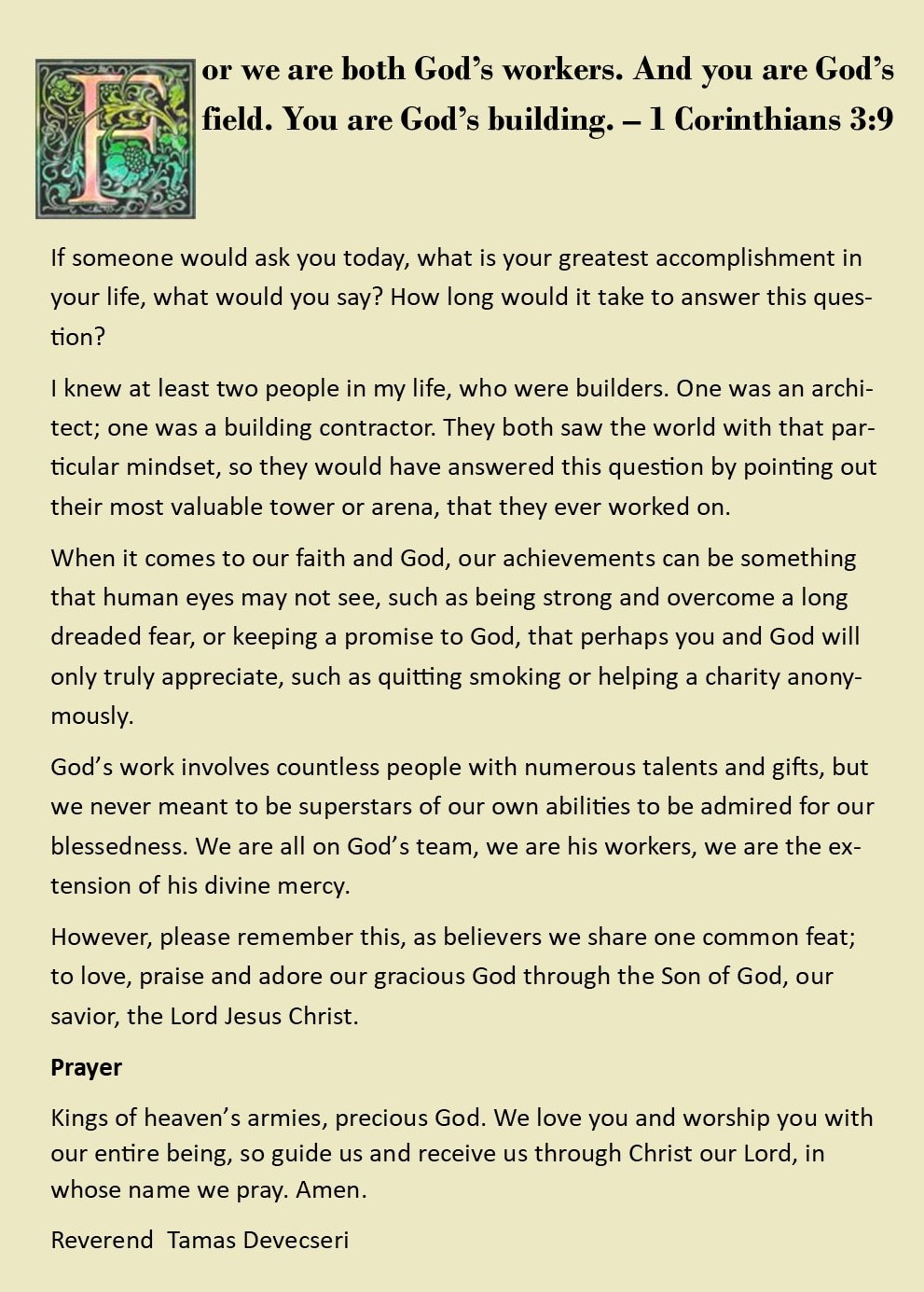
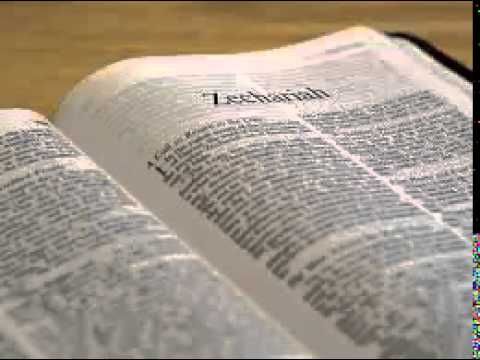
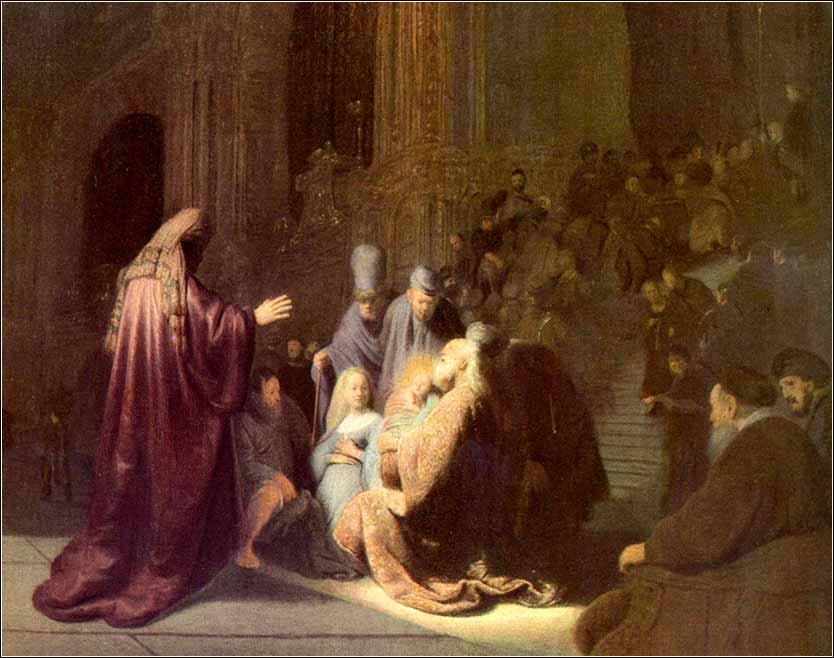
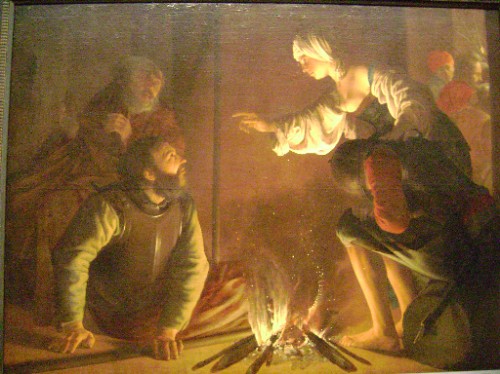
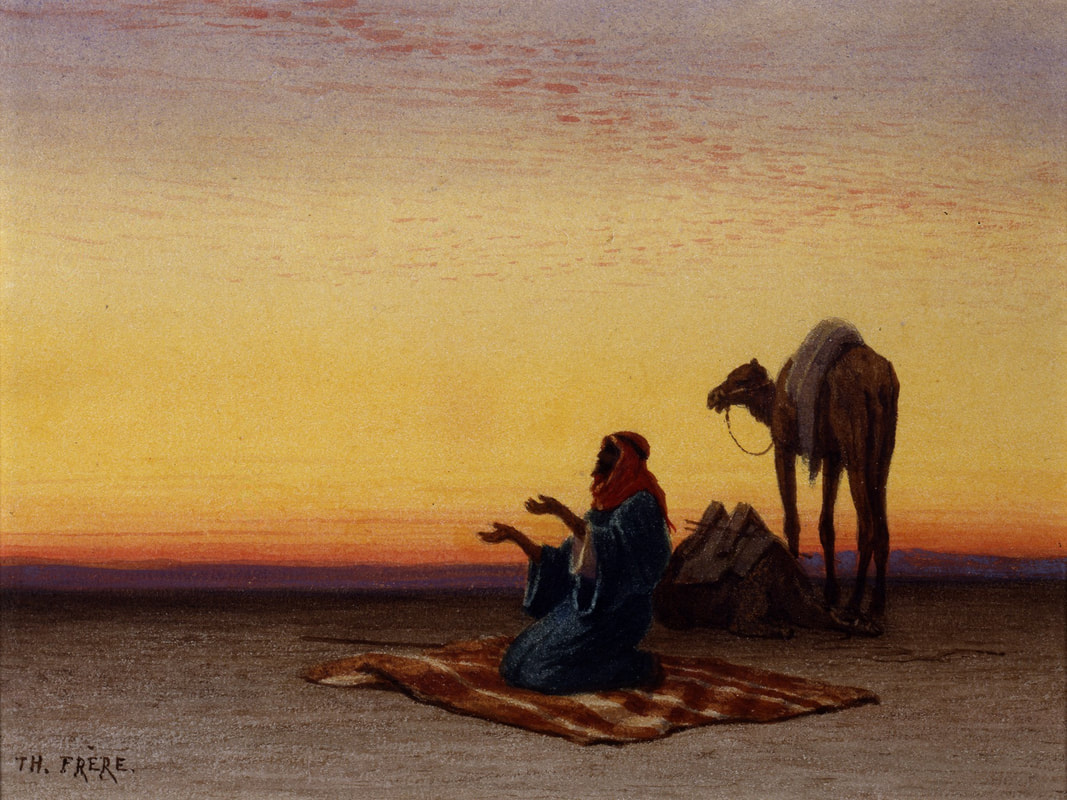
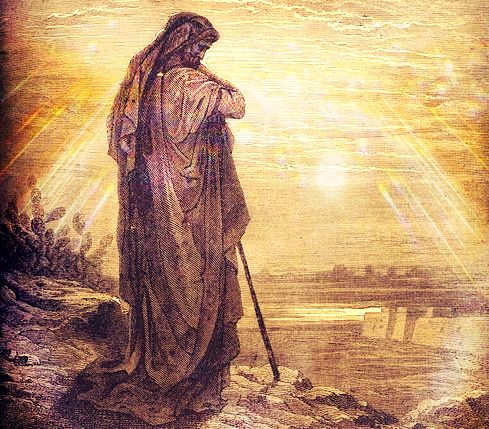
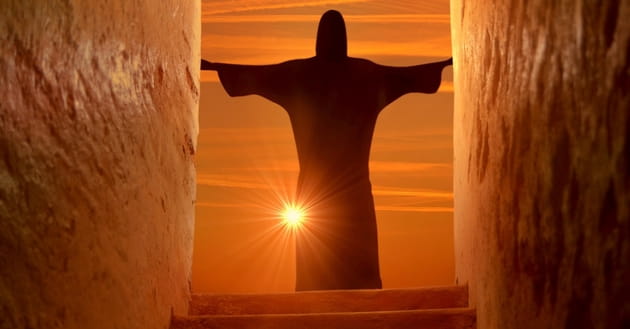
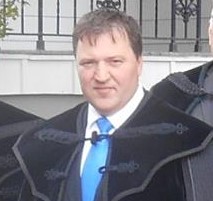
 RSS Feed
RSS Feed
